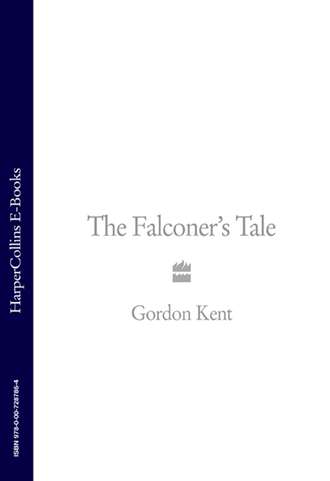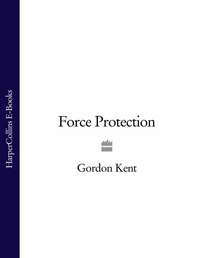
Полная версия
The Falconer’s Tale
“This ‘girlfriend’ is different.”
“You deal with the guy alone and keep her out of it. That’s how it’s done!”
“There’d be no deal if I had.”
Dave made a contemptuous sound. Piat said, in a voice that meant See how hard I’m working to keep from calling you a stupid asshole, “Dave, you don’t know this guy or this woman. They don’t do things without each other.”
“You’ve blown security and you’ve saddled me with a big fucking problem. I’ve got to run this guy!”
“Yeah, now thanks to me, you do.”
“Christ, if I’d known you were going to tell the girlfriend, I’d have aborted you right the hell out. Jesus, what a bush-league thing to do. You know what Partlow would do to you if he knew?”
“Yeah, Dave, I know what Partlow would do. He’d say, ‘Well, if that was your judgment call, okay.’”
“He wouldn’t! He’d tell you you blew it and to get lost. Now I’m stuck with it.” Dave was standing by the window of his room in the Western Isles Hotel, his fists clenched, his face blotched with rage. He was scared, Piat realized. Scared because he was going to have to do something that wasn’t in the book. Dave said, “You’re a fucking loser.”
Piat didn’t miss a beat: he didn’t raise his voice or get red or insist on the challenge of eye contact. He said, as if he were lecturing a beginning class, “You get to him through her, at least at the start. Hackbutt will take a lot of stroking. Pass some of it through her. It’ll please both of them and—”
“Don’t tell me how to do my fucking job!”
Piat waited for him to stop and then went right on. “Hackbutt’ll need a makeover. Clothes. A decent haircut. You’re going to have to teach him how to—”
Dave lumbered toward him. “Get the fuck out of here! Stop talking to me! Get lost!”
Piat waited for him to come close. He thought it would be nifty to put Dave on his back. Maybe Dave saw that that was a possibility, too, because he pulled up before he was quite close enough. He shouted “Get lost!” again. Piat looked him in the eye and, in the same tone of somebody doing a routine, file-it-and-forget-briefing, said, “You’re meeting Hackbutt at lunch tomorrow. I’ve made a reservation at a restaurant called the Mediterranea in Salen, partway down the island. Noon.” He waited for Dave to take it in. “The hardest part of all was getting Hackbutt to agree to anybody but me as his CO. It took me an hour. You’re going to have to turn on all the charm when you meet him, Dave.”
“I know how to do my job.”
“Hackbutt’s prepared to dislike you, because you aren’t me. Hackbutt thought it was going to be me. He’s a one-man man.”
“That’s fucking laughable—that we’d trust a job like this to you.” Dave jabbed with his finger, but not very far, because there was always the possibility that Piat was fast enough to catch a flying finger and break it. “You’re an agent! You’re nothing but a goddam pissant agent! And don’t you forget it!”
Piat put his hands up a little above his waist, palms out. Dave’s hands jerked as if he expected a blow. Piat said, “There’s an old Patsy Cline song—‘Why Can’t He Be You?’ You might want to give it a listen to understand Hackbutt’s position. Or you can just go on being an asshole and lose him and then you can tell Partlow why your agent won’t work with you. I won’t be around to blame, unfortunately for you. Lucky me. See you at noon tomorrow, Dave.”
Piat went out and closed the door very softly.
It rained most of the night and was still raining when they started for the meeting with Hackbutt, a depressing dribble from the low overcast, as if the universe above was saturated and had to let the water leak out somewhere. Dave was driving. Piat, in the left-hand seat, wasn’t sure how he was supposed to get back to Tobermory after lunch if Dave took off with Hackbutt, but there was a bus, at least; asking Dave what he had in mind would prove too explosive, he thought, and anyway he didn’t want Dave to get the idea that he could plan Piat’s day.
Dave was still angry; maybe he’d been chewing on the scene in his room all night. He had bitched about the island roads all the way down, and he had come close to hitting another car more or less head on because he hadn’t gone into the lay-by that opened next to them, and instead he had thought the oncoming car would be terrorized into getting out of his way. It hadn’t been.
“Nice move,” Piat couldn’t resist saying when they were as far off the road as a stone wall would let them. The other car was vanishing behind them. The passenger-side fender was crumpled against the wall, and Piat couldn’t have opened his door more than inch even if he’d wanted to.
It hadn’t helped that another car had passed and the driver had laughed.
When they got out in the drizzle at Salen, Dave was in the silent phase of anger. He didn’t bother with his raincoat but hunched his shoulders and walked toward the restaurant—if you can’t punish somebody else for being stupid, punish yourself. Piat regretted having said what he’d said, because he knew he had made things worse, and it would all rub off on the meeting with Hackbutt. He didn’t know why he cared that the meeting go well, but he did. Maybe for Hackbutt’s sake. Maybe some vestigial pride of craft.
“Reservation,” Dave growled to the smiling man behind the combination bar and reservation desk.
“Name?”
Dave ground his teeth. He didn’t know Piat’s cover name.
“Michaels,” Piat said. “Jack Michaels.”
“Oh, yes, right—we chatted on the phone about running.” They had, in fact; now they chatted a bit more while Dave secreted bile. Piat had run a route the day before that this young man had suggested. “Fantastic,” Piat said now. “Great scenery. Great run.” The young man talked about hamstrings.
Hackbutt wasn’t there yet. They sat at a table for four, from which the young man whisked a table setting. Dave folded his arms and looked around as if he expected somebody to call him a bad name. Piat ordered a glass of Brunello and bruschetta, which wasn’t on the menu but didn’t raise any eyebrows. He tried to mollify Dave by offering him some of the toasted bread when it came, but Dave simply looked at it. He wasn’t going to allow himself to enjoy anything.
Hard on poor old Hackbutt.
“We could order,” Piat said when Hackbutt was twenty minutes late.
“We’ll wait.”
Piat shrugged and asked the young man if by any chance they had some roasted pepper in olive oil. He was enjoying that when at last Hackbutt stumbled in, looking as if he’d just come from Lear’s blasted heath—hair soaked and tangled, beard dripping, ancient drover’s coat glued to his legs by the wet.
“I walked.”
All three of them were standing by then. Hackbutt looked only at Piat. Piat saw Dave stick out his hand, and he said quickly, “This is the guy I’ve told you so much about, Digger. You two will really get along.” He ducked out of the way of Dave’s paw and went behind Hackbutt to help him off with the enormous and very wet coat. Hackbutt tried to turn to keep eye contact as if it were his only contact with reality. Piat gently turned him back and eased the coat off his shoulders, preventing Hackbutt from putting out his own hand. By the time he was able to do so, Dave had withdrawn the offer and was pulling back his chair.
“Siddown,” Dave said.
Hackbutt looked at Piat for permission. Piat nodded. Hackbutt sat.
So did Piat. He picked up his fork and stabbed it into a piece of glossy roasted pepper and prepared to say something light and conversational about the weather, and Dave said to him, “You’re done here. Bug out.”
Piat looked at him. Dave, he thought, was incredible. He put the pepper in his mouth and picked up his last piece of bruschetta and mopped up some of the olive oil. When he looked at his old friend, Hackbutt’s face showed frozen panic.
“You hear me?” Dave said.
“I did.”
“You’re done. Head out.” He jerked one thumb toward the door. “Look for a Land Rover.”
Hackbutt at last managed to open his mouth and wheeze, “Yeah, but—Jack, Jeez—”
Piat was on his feet. He patted Hackbutt’s shoulder. “Everything’ll be fine. It’ll be great.” He glanced at Dave and saw an expression of malice and triumph. Dave, he knew, was right—the case officer’s the boss—but my god! he was a shit. Piat walked the few steps to the entryway, picked his raincoat off a hook, and opened the door. It was raining harder. He didn’t look back because he didn’t want to see Hackbutt’s face.
He went out to the road and started looking for a Land Rover, found one around the corner of the restaurant. Partlow was just visible through the rain at the wheel. Piat climbed in the passenger door.
“There we are, Jerry,” said Partlow. “Probably the easiest ten thousand dollars you ever earned.” He put the car in gear and started out of town. The big chassis barely fit the single-lane road past the old inn that dominated the north end of Salen.
“That’s it?” asked Piat. “And you’re sure Dave can handle this from here?”
Partlow changed gears. “I’m sure Dave can handle him as well as anyone, Jerry.” There were headlights visible on the long hill down from Aros Mains, and Partlow pulled into a lay-by to let the other car pass.
Piat considered a number of bitter replies and realized that, whatever mistakes Dave made, he himself was out of it. For two days, he had returned to the world of being a case officer. He had allowed Hackbutt’s needs to become the horizon and limit of his world, just as he always had. The shoulder to cry on. The voice in the dark.
All done. Never again, and all that. He took a deep breath and let it out.
“So, now what?” Piat asked. He was gripping the hand-hold over the passenger window a little too hard. Partlow was driving fast in the rain, taking curves too aggressively, and with what Piat saw as a reckless disregard for the possibility of further oncoming vehicles on a single-lane road.
“I take you back to the hotel. You check out and take the ferry back to the mainland. And goodbye.”
Piat trod hard on his anger. Partlow’s dismissal was a little too much like Dave’s. Stick to what matters. “When do I get my money? And my rods?”
“Why, immediately, if you like. Really, Jerry, your constant paranoia depresses me. You are done. You were hired to perform a service and you did a fine job. No hard feelings, I hope?”
Piat eyed an upcoming double hairpin turn with some misgivings, but he said, “No, Clyde. For once, I have no hard feelings.” He shrugged, mostly at himself. But Partlow was clearly pleased with the progress of the operation, and he probably had money just lying around—“Although I did lose a thousand dollars’ worth of fishing in Iceland, a trip I had planned and anticipated for some time.”
“Jerry, just come out with it. I take it we’re leading up to a demand for more cash?” Partlow sounded like a loving but aggrieved parent.
“Well.” Piat’s grasp on the handle loosened as Partlow reached the two-lane road that led into Tobermory. “Well, to be frank, Clyde, I’d think you could get me an airplane ticket and refund me the value of my trip to Iceland.”
Partlow sighed. “I had intended to add fifteen hundred dollars as a success bonus, Jerry. Is that sufficient? You can purchase your own ticket.”
Piat watched the town of Tobermory spreading out below them as they drove around the traffic circle. “Throw in the car for the rest of the day,” he said. “Let me have the car. I’ll go fishing.”
Partlow sighed again. “Jerry, sometimes I think you aren’t quite sane. It’s raining. It’s cold.”
“So you won’t leave the hotel. It’s a spate, Clyde. Give me the money and my rods and I’ll get an afternoon’s fishing here. And no hard feelings.” Curious how easily manipulated Partlow was on this. It had never occurred to Piat before that Partlow wanted his approval. But he did. Interesting.
Partlow turned and looked at him, as if assessing him. Almost certainly was assessing him. Then he smiled. “What the hell. Just don’t run off with the car, Jerry, okay? It’s a rental, and I signed for it.”
Piat smiled. “Clyde, why would I run off with the car?”
Piat spent thirty minutes with Partlow signing forms. It amused him that Clyde was so punctilious on his forms—another sign that the man hadn’t spent enough time running real agents. Perhaps that was the root of his insecurity. Piat complied cheerfully, however, especially when he discovered that he could sign all the forms in a cover name. He acquired sixty-five hundred dollars in large bills and retrieved his fishing gear and his battered backpack.
In his own room at the Mishnish he called Irene. Hackbutt would still be at the restaurant; Piat’s responsibility to the operation was over; what better time to get her to join him? Except that nobody answered at the farm. He called airlines at Glasgow and discovered that, as he had suspected, he couldn’t get back to Greece for twenty-four hours. Irene was vanishing over his horizon—Hackbutt would get back to the farm soon; complications would set in. He shrugged. In an hour, he was in the car, which he loathed as too big and too flashy—and too damned short to carry his rod already set up.
He had ideas about where to go to fish—he’d virtually memorized the green tourist brochure in his room. He sat in the car, watching the rain over the sea, and tried to remember how fishing worked in Scotland. You had to buy tickets—there was virtually no public fishing. At least, that’s what he’d read in the brochure. A glance at his watch told him that it was two p.m. He shut off the car and went back into the hotel.
The windows of the bookstore were full of children’s books and travel guides to catch the tourist’s eyes, but as soon as he was through the door and out of the rain he saw the case of flies and the corner dedicated to fishing. The floor was old wood, the ceiling low—it was an eighteenth-century shop front, or perhaps two joined together.
A pretty young woman stood behind the counter, perhaps sixteen years old—a little young for Piat, but a pleasure to see. “I wonder if you could tell me about the fishing,” Piat asked. “I have the afternoon.”
“Would you be wanting the trout, then?” she asked.
“Salmon?” Piat asked, a little wistfully. “Or is there sea trout fishing here?”
“Some, aye. My da would know better.” She spoke quite seriously—fishing was a serious subject here. “He’s in the back. Shall I get him, then?”
She made Piat feel quite old. “Yes, please,” he said, like a boy on his best behavior.
She vanished into an office in the back. Piat began to browse. The front of the store was full of books for tourists, with maps and walking guides and a whole series of books on the genealogy and history of the island. All locally printed. He flipped through one, a walking guide with historical notes. The antiquarian in him automatically counted the hill forts, the duns, the standing stones—the island boasted a strong archaeological record.
“Are you looking for sea trout?”
Piat turned from the book rack and saw a tall man, gaunt, with a huge smile and a shock of black hair. He did not have the expected accent.
“Yes. Sea trout,” said Piat.
“Not what they used to be, I’m afraid. Had some Americans catching them in the Aros last year—they come every year. Aros estuary. I can give you that for this evening, but there’s no point in going there now. The tide’s down.”
Piat nodded. “How much?”
“Five pounds for the estuary. It’s best fished two hours either side of high tide. I wouldn’t even start on it until six. I’m Donald, by the way.”
“Jack,” said Piat, shaking hands. He’d been Jack for two days. The lie came automatically, and Piat thought Why’d I do that? “I’d like to fish this afternoon, too.”
“You have a car?” Donald asked. Donald spoke the way Clyde Partlow wanted to speak, with no trace of an island accent—like someone who had gone to all the best schools. Eton. Oxford. Maybe Cambridge. “I don’t guarantee you’ll get any fish, but Loch Làidir is available.” He seemed wistful. “It’s quite a climb from the road.”
The man was already filling out a bright orange card. “Leave this on the dashboard of your car.”
Piat watched him for a few seconds. “Where am I going?” he asked.
“Oh, yes. Right.” Donald flashed his gigantic smile again. “Do you know the island at all?”
“I can get from here to Salen,” Piat replied with a shrug. “I’ve driven over near Dervaig.”
“Right. You’ll want a map.” He pointed to the rack of Ordnance Surveys. He rattled off driving directions. “It should take you less than half an hour to get there. Then the climb—you see this stream?—strenuous but worth it.” His forefinger covered the mark on the map. “Just follow it up to the loch. Nothing in it but wee trout. The sea trout come up the other side, from the sea, of course. Once you reach the loch, it’s still difficult going—rock all the way round. But there’s a gravel beach on this shore. I’d fish there, by the crannog.”
Piat saw a tiny island on the Ordnance map, with the word “crannog” in minute italics. “What’s a crannog?” he asked.
Donald laughed. “A local oddity. An artificial island. Built long ago. You have waders?”
Piat shook his head.
Donald considered him. Piat knew that Donald had just written him off as a novice.
“I forgot them,” he muttered.
“You really will need them.” Then, cheerfully, “I suppose that you could just skip about on the shore. The loch is very deep in places.”
With a sigh for the money, Piat chose a pair of heavy rubber thigh waders from the fishing equipment. He wondered if the bulky things would go in his pack. He noted that the shop had light waders—very pricey. But they’d fit in his pack, and in effect, Partlow was paying. What the hell.
Piat paid.
The climb to the loch was spectacular. The terrain was very like Iceland, with shocks of coarse grass over gravel and volcanic rock. There was a path at first, but it soon divided into hundreds of sheep tracks, all going in the same general direction up the stream. It took him almost an hour to climb over the last crest and look down into what had to be the caldera of an extinct volcano. The shingle of gravel was clearly visible across the loch, and so was the crannog, seen at this distance as a humped island with a single tree growing from it, the tree visible for a mile in any direction because it was the only one. Again, Piat was reminded of the immense vistas of Africa.
Beyond the far lip of the caldera was only sky. High above, an eagle circled. Piat drank a cup of tea from his thermos and started down. The sense of openness—freedom, even—Piat couldn’t think of the origin of the tag, but the words above him, only sky ran around and around his head. The Bible? The Beatles?
It was three-thirty before he arrived on the gravel and set up his rod. He fished the shallow water between the gravel and the crannog for fifteen minutes, hooking and releasing a half-dozen minute brown trout. Then he put on the light, stocking-foot waders, a wet task in the rain, and pulled his boots on over them. No choice there. His boots were in for a pounding.
He worked the seaward end of the gravel, moving slowly into the deeper water. The loch itself was quite deep and very clear, so that when the watery sun made momentary appearances, he could see the complex rock formations in the depths. Right at his feet was a hollow cone of rock thirty feet across and so deep in the middle that light couldn’t penetrate it, some sort of ancient volcanic vent. He cast to the edge of the vent and immediately caught a strong brown trout, perhaps a pound, which he watched rise from the depths to seize the sea-trout fly. As far as he could see, the loch was short on food for fish and long on fish, but watching the predatory glide of the brown to his fly was pure joy.
A younger and braver fisherman could walk out along the vent’s top ridge to fish the deeper water. Piat actually considered it for a moment while he landed the brown trout before deciding that the creeping cowardice of age was going to win this one. He released the brown. He’d eat in a restaurant for his last meal on the island, and they wouldn’t want to cook his fish.
The crannog rose like a temptation, only fifteen or twenty meters off shore, the perfect platform from which to fish the vent, and whatever further wonders might lurk in the loch beyond. Piat climbed out of the water on the shingle and eyed the crannog. The water was too deep to walk out directly—he’d be over the top of his belt at the midpoint, soaked to the skin and cold. But there were stones under the surface of the water, two sets of stepping stones. The stones themselves were well down, but he thought he could move from one stone to the next without going over his waders.
Piat knew he was going to attempt it. He laughed at himself while he drank some tea, because his failure to accept the lure of the vent ridge meant that he was going to try and prove himself on something just as ridiculous. Partlow had thought he was crazy for fishing in the rain. Piat raised his cup of tea to Partlow. Then he stowed it, put his pack under a particularly large clump of grass as the best shelter from the rain available, and studied the stones one more time.
The left-hand stones looked more accessible. They started in deeper water but stuck up higher and seemed to have larger and flatter tops. Piat waded out to the first stone and stepped up. The surface of the stone was covered in a dark olive slime and his hiking boots slipped badly. He moved cautiously to the next stone. The water came to the middle of his knee. He used his rod as a staff, heedless of the wetting of his reel, and took a long gliding step to the third stone. It was less slippery, and he paused to rest, sweat already pouring down his chest under his sweater.
The fourth stone was clearly visible now, a darker and larger stone that marked the halfway point. Piat knew the moment his boot touched the surface under water that this stone was slippery, and then he was in the water, his waders full and then his mouth. The water was cold—so cold that it hit him like an electric shock—and the bottom was ooze, not rock, so that his feet were sinking and he had no purchase.
Piat had long experience of his own panic reflex and he beat it down, kept hold of his rod and kept the other hand in contact with the stepping stone until he had control of his brain, and then he used the strength of his arms to pull himself up on the rock, heedless of the temperature of the water. The wind on his head was like a new shock of ice. He’d lost his hat, which was scudding across the loch on the surface of the water. Mud and ooze billowed around his thrashing feet. He pulled himself up by the strength of his arms, heaving the weight of his full waders to the rock.
He fell again, just one stone out from the shore, but he was prepared this time, and his fall merely caused him to sit down hard on the stone and take a new batch of cold water over his waders.
Close up, the crannog was composed of small, round rocks the size of his fist, raised in a low mound. Underneath the water, the mound of rubble continued, although he could clearly see a beam or heavy rafter of wood deep in the clear water of the leeward side.
He stripped. He wrung out each sodden garment and put the wool socks and the jeans and sweater back on under the now empty waders, made a bundle of the rest of the clothes and tied it around his waist. He was warmer already—his jacket and the waders were windproof, and the wool was warm even when wet. Just to make a point to himself, he made some desultory casts into the deep water beyond the crannog. Something made a sizeable silver flash on his fourth cast—
Gone. A sea trout, without question. A good fish. He cast again, and again, trying to relive the moment of the earlier cast and remember just what he had done, eventually wondering if he had imagined the whole thing. His head was cold, and that wasn’t good.








